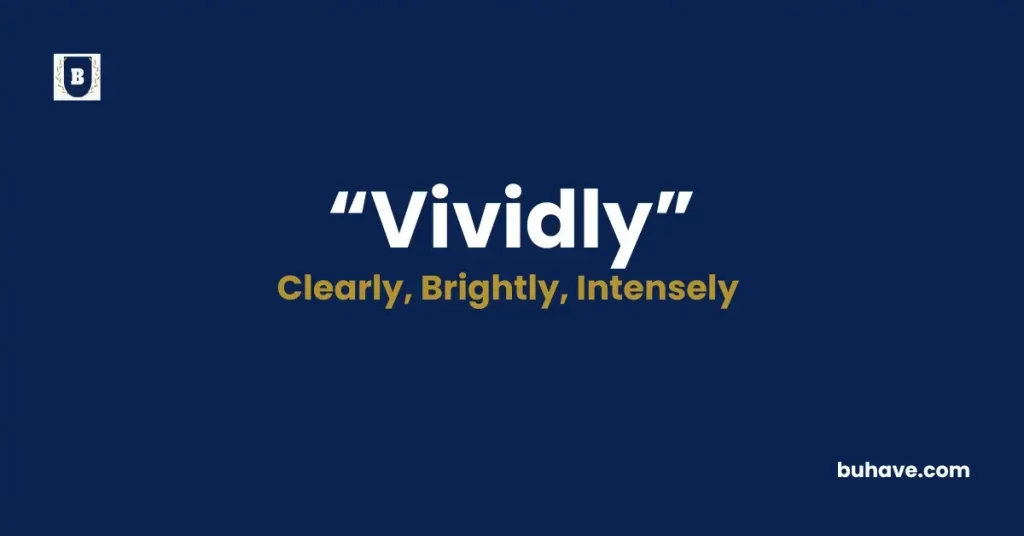The word ‘Vividly’ (Adverb) describes the manner of expressing something in a way that is clear, detailed, and easy to imagine. In this guide, you’ll learn the full definition, synonyms, antonyms, etymology, and real-life examples of how to use ‘Vividly’ correctly in sentences.
Vividly Explained in Depth
A complete and detailed guide to the word Vividly, including meaning, definition, examples, etymology, synonyms, and antonyms.
Meanings of Vividly
Vividly refers to describing or experiencing something with striking clarity, liveliness, and detail. It often implies that the description or experience is so clear and strong that it feels almost real.
Definition
Vividly is in a way that produces a powerful, distinct, and lifelike impression on the mind or senses. It conveys the idea of intensity, brightness, or clarity in a description or memory.
Etymology
- Derived from the adjective vivid, which comes from the Latin vividus, meaning “lively” or “full of life.”
- Formed by adding the adverbial suffix -ly to vivid.
- The usage in English dates back to the early 17th century.
Example Sentences
- She described the sunset so vividly that I felt like I was there with her.
- He remembers his childhood vividly, every detail etched in his memory.
- The movie brought the story to life vividly, capturing every emotion perfectly.
Vividly Synonyms
- Clearly
- Distinctly
- Intensely
- Graphically
- Brilliantly
- Strikingly
- Colorfully
- Lucidly
- Expressively
- Memorably
Vividly Antonyms
- Dimly
- Faintly
- Unclearly
- Indistinctly
- Dully
- Vaguely
- Obscurely
- Blurrily
- Mutedly
- Subtly
FAQs about Vividly
Here are some frequently asked questions (FAQs) about the word “Vividly”
1. What does “vividly” mean in a sentence?
It means describing or experiencing something with clear and detailed images or sensations, making it feel very real and lively.
2. Can “vividly” describe emotions?
Yes, it can. For example, “She vividly remembers the excitement of winning the race.”
3. How can I use “vividly” in writing?
You can use it to enhance descriptions and create strong imagery, making your writing more engaging and memorable.
4. Is “vividly” positive or negative?
It’s generally neutral, but often carries a positive connotation by making things more lifelike and impactful.
5. What’s the difference between “vividly” and “clearly”?
“Vividly” adds intensity, brightness, and emotional impact, while “clearly” focuses on precision and lack of confusion.

















